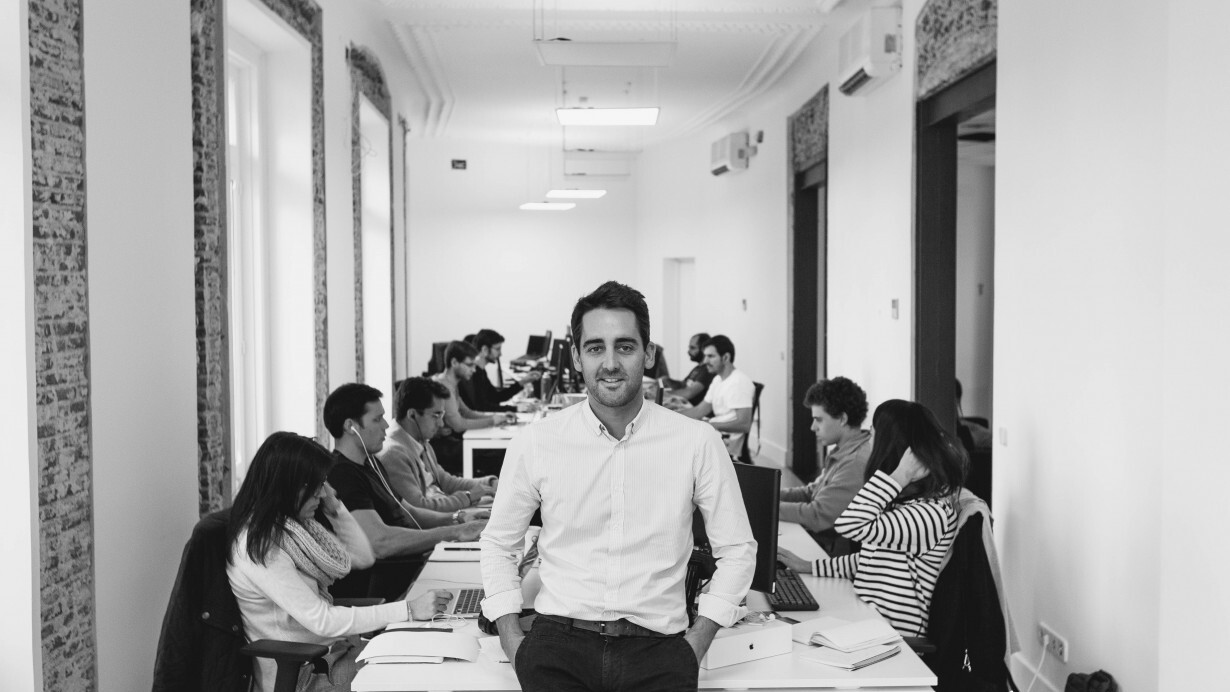
This interview is part of our series of Growth Stories. We interviewed the founders and CEOs of 20 of the fastest growing startups in Europe. We asked them about their companies, their companies’ culture, and their lives, trying to understand how these three factors played a role in the achievement of such impressive growth.
If you want to know where to launch your next business venture, keep reading — Spanish startup Geoblink can help you out. Founded in 2015, the company is already leading the field of location intelligence.
Geoblink has had great success, like many other businesses that deal with location-services and mapping technologies, such as the increasingly popular dating-app Happn. The app that finds your position and matches you based on your location. But that’s a (growth) story for another time — which you can read soon here on TNW.
Less romantically, Geoblink relies on artificial intelligence and machine learning to offer ready-to-use solutions for businesses that want to optimize their geo-marketing strategies.
In plain words, Geoblink is a software that tells you where to open your next store or how much your estate will be worth in the future.
Already established in three countries — Spain, France, and the UK — the company has been growing at an impressive clip with a staggering 1,700 percent growth in the last three years.
To find out more, I reached out to Jaime Sánchez-Laulhé, the CEO and founder of the company.
TNW: What did you see in the market that was missing or could have been done better?
Jaime Sánchez-Laulhé: When I was working as a consultant at McKinsey, I had the opportunity to work really close with some retailers. Thanks to this experience, I realized that they needed someone to tell them where to open their new stores.
But they didn’t want punditry. They wanted data-driven insights. That’s how the idea of Geoblink popped up in my mind.
What differentiates Geoblink from its competitors?
I’d say that there are three main differences with our competitors. First off, we are “vertical.” We don’t try to solve hundreds of problems and we focus only on three industries: retail, FMCG, and real estate.
Then, our platform is ready-to-use: you don’t need any technical skills to get insights from it.
And, finally, Geoblink is fueled by many different kinds of data: we have sociodemographics, consumption data, and traffic but we also build our own indicators to predict future trends. We have a team of data scientist from CERN working on that.
Can you name a fundamental factor that you think really contributed to Geoblink’s growth?
If I had to name just one, I’d indeed say the talented human capital.

How did you manage the steps to become bigger?
Once again, it’s a matter of human capital. We were really lucky because we could rely on a senior executive team that helped us in this sense.
What’s a cool startup perk that Geoblink implemented since it started to grow?
We used to have a standard vacation policy. Last month, we finally implemented a more flexible one. Now, the employees are allowed to take days off or work from home whenever they like to.
We believe that our employees are all “mini-CEOs” and have the ownership to take their own decisions. To our surprise, productivity is increasing.
What does it mean for you to be a (big) CEO?
Well, when presenting myself to the new team members I always say that I’m the one responsible for ensuring that the good people stay here and that everyone’s happy. At the same time, I mark the strategy of the company: where are we going and where we want to go.
Is there something you’d like to know from the other CEOs/founders that we’re interviewing for this series of Growth Stories?
I would like to know what have been the main challenges they encountered when funding the company and how they overcame them.
In this regard, Raymond Klompsma (CEO, co-founder Srprs.me) wants to know what’s the advice you would give to your 19-year-old self?
I always wanted to be an entrepreneur and set up my own business, but I was waiting to be old enough. To my 19-year-old self, I’d say that you need to take advantage of the freshness of the age to find new markets and ideas.
At the same time, you need to be patient, study, and above all learn from others. I actually don’t think entrepreneurship is a matter of age.
Instead, Ola Sars (CEO, co-founder Soundtrack your Brand) asks: how do you see yourself in 10 years?
Still spearheading Geoblink, of course!
Koen Thijssen (co-founder Bloomon): “What has been so far the hardest challenge you had to overcome as a company and as a CEO?”
Find and retain the right talents – that is always and will always be a challenge. The torment and delight of entrepreneurship!
—
In the lead-up to Tech5 2018 – the annual competition organized by TNW and Adyen which celebrates Europe’s fastest-growing tech companies in the Netherlands, UK, Germany, Spain, France, and Sweden – we’re launching a series of remarkable stories of businesses that experienced extreme growth. If you are a startup with an inspiring/remarkable/interesting story about finding your special metric that led to growth, please share it with davide@thenextweb.com.
Get the TNW newsletter
Get the most important tech news in your inbox each week.





